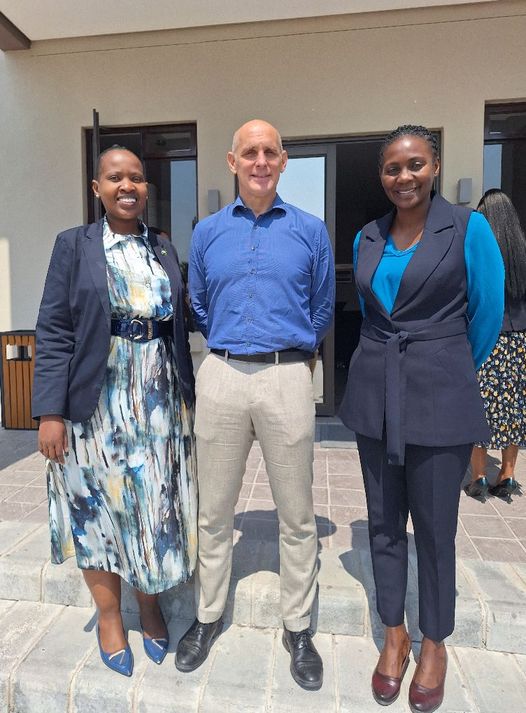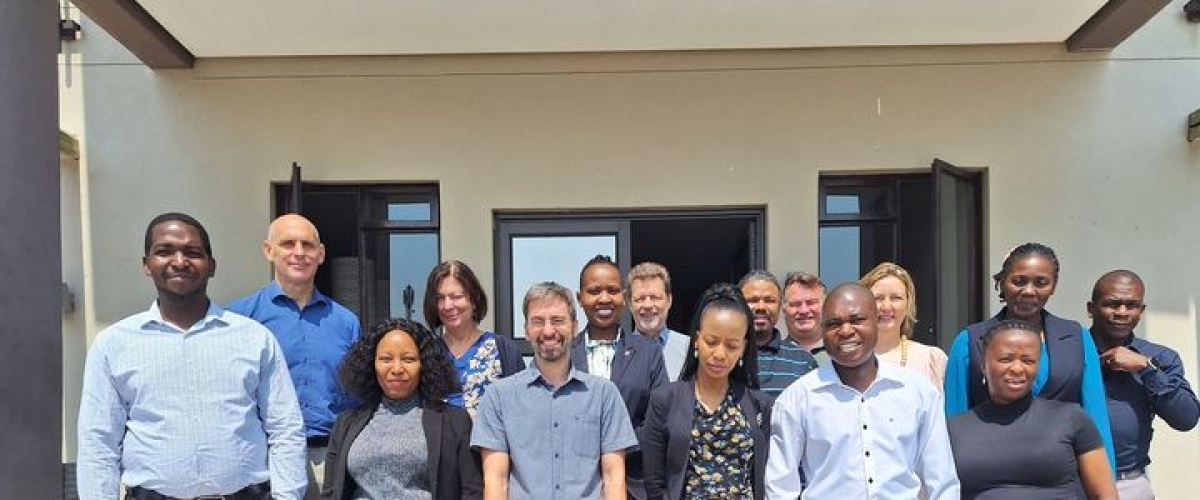
The IKI Growing Greener (GG) project took a significant step forward during its 1st Regional Steering Committee (RSC) Meeting, held in Maun, Botswana, from September 24 to 26, 2024. The first day focused on establishing the terms of reference for the Steering Committee and reviewing updates from consortium members. The IKI consortium comprises a diverse group of partners, including GIZ from South Africa, Botswana, and Germany; Conservation International from Botswana, Kenya, and South Africa; Peace Parks from Zambia and South Africa; and CCARDESA. Additionally, the meeting saw government representation from South Africa, Botswana, and Madagascar, further strengthening the collaborative efforts to address climate change and promote sustainable development across the region.
Dr. Boitumelo Mogome-Maseko, Deputy Permanent Secretary of Botswana’s Ministry of Agriculture and Livestock, delivered the official opening remarks. She emphasized Botswana’s commitment to the GG project, aligning it with the country’s broader climate change mitigation goals. "Botswana is committed to addressing climate change as a strategic priority, and the Growing Greener initiative is an integral part of this effort. We expect it to benefit local communities, especially those in Ngamiland, significantly," she said.
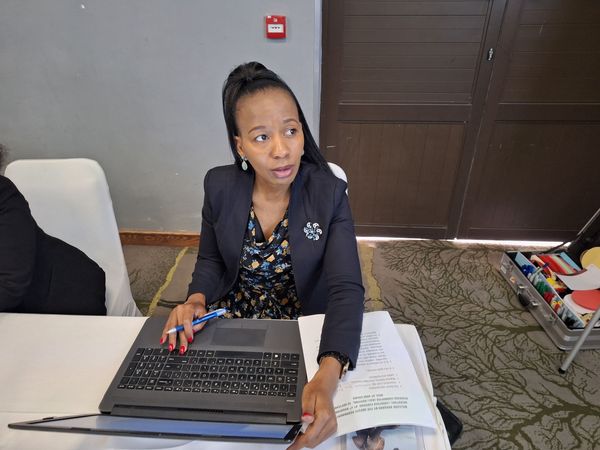
The project has garnered strong support from international partners. Yves Brehm, head of Cooperation at the German Embassy in Gaborone, praised the project’s timing, stating, "We, as Germany, are pleased to see the Growing Greener project take off. With climate change affecting so many across the globe, this initiative couldn’t have come at a better time. We look forward to seeing the positive impact on local communities and strong collaboration.", he said, citing the proverb, "If you want to go far, walk together," as a reminder of the power of partnerships.
Mr. Martin Leineweber, the Growing Greener Project Manager, also presented during the Steering Committee meeting, sharing the project’s roadmap. "Our goal is to create sustainable solutions through collaboration. This is the only way we can ensure long-lasting impacts.”

After the Steering Committee session, Consortium partners presented their achievements from the past months and outlined their plans for the coming years. These presentations highlighted the progress made in implementing key components of the project and the strategies and activities that will be prioritized moving forward. This forward-looking approach demonstrated the consortium's commitment to addressing climate challenges and driving sustainable development in the region through collaborative efforts and innovative solutions.
On the second day, the IKI team visited Habu Village, the Botswana Project implementation site, where the Herding for Health (H4H) initiative is being deployed. This initiative integrates sustainable livestock management with wildlife conservation. It addresses the complex interaction between livestock and wildlife, a critical issue in the Ngamiland region.
The team was introduced to several ongoing projects in Habu, including solar-powered wells designed to reduce livestock-wildlife conflict by providing separate water sources for cattle and wildlife. "This project has transformed how we manage our livestock," said the Manager of the Conservancy Trust of the local herders. The H4H program also involves rotational grazing, professional herders, and eco-guards who monitor wildlife interactions.
The Habu Village initiative also includes plans for a local abattoir and butchery to supply "wildlife-friendly" meat to lodges in the Okavango Delta. Additionally, the village has implemented a women's empowerment garden project, growing vegetables for sale to local lodges. While this project is fully operational, there are ongoing efforts to boost community engagement.
On the final day, over 15 community chiefs from the Ngamiland region participated in a consultative stakeholder engagement session. The meeting focused on the project’s alignment with the Sustainable Development Goals (SDGs) and its potential benefits to local communities. The meeting aimed to introduce the chiefs to the IKI project and secure their buy-in and commitment.
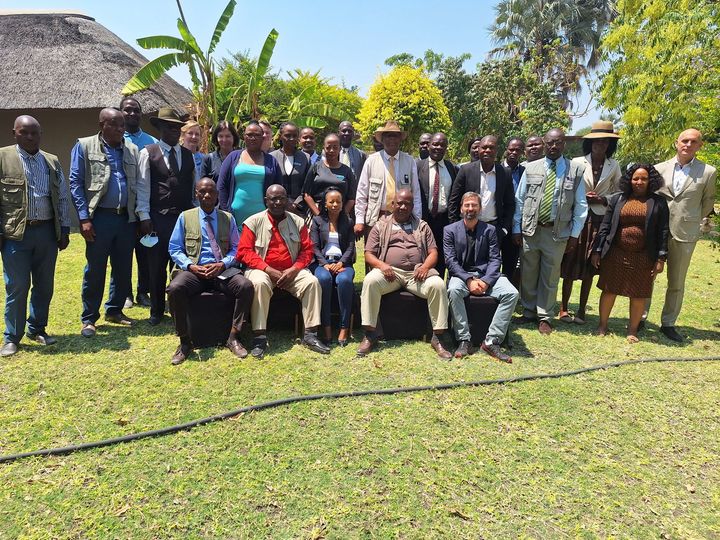
Kgosi Masedi of Habu Village shared his insights on the success of the H4H initiative in his community. "This concept has shown us how to manage our land and resources better. Our village has thrived because we are working together to address the challenges of livestock-wildlife conflict," he urged other communities to adopt similar approaches.
Kgosi Moitshepi Molelwa, Chief of Gumare, welcomed the initiative, stating, "The Growing Greener Consortium’s approach is timely and much needed. Our communities are eager to collaborate and find sustainable solutions to the pressing environmental challenges we face."
Kgosi Masedi of Habu Village gave a compelling presentation, showing maps comparing rangelands in different conditions and demonstrating the tangible benefits of the H4H concept. "We must rethink how we manage our rangelands. The SDGs are closely tied to what we are doing here in Habu. Let’s ensure we all learn and apply these principles for the betterment of our communities," he said urgingly.
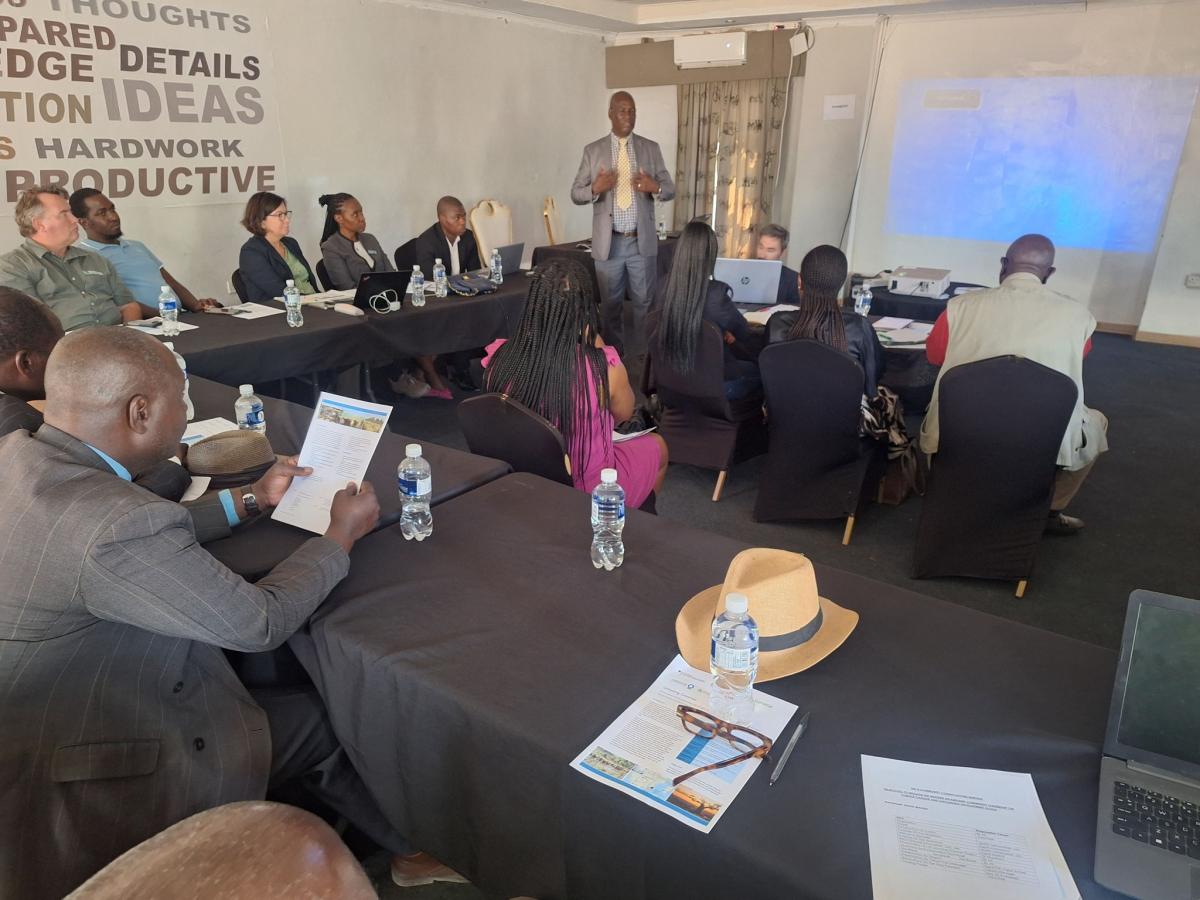
Kgosi Xishee of the Khoi San people highlighted her village’s unique position in the project, emphasizing its cultural and environmental significance. "Our village is special. We are home to a cave, and we have the Big 6—our people being the sixth. We face challenges, but this project offers a path forward by teaching us how to coexist with wildlife and manage our resources." She said. She also spoke passionately about her village's unique challenges: “We have a special relationship with our land and wildlife. But we need capacity-building to manage our resources better and ensure the community benefits.”
In the closing remarks, Dr. Boitumelo Mogome-Maseko reiterated the importance of local communities driving the conservation effort. "Conservation must be driven and owned by the people it impacts. Only by working together can we create lasting change."
The meeting, which gathered key stakeholders, including local chiefs, community leaders, and consortium members, to discuss the project’s direction and implementation plans for 2024-25, concluded on a hopeful note. Stakeholders were united in their commitment to improving the livelihoods of the people in Ngamiland through sustainable practices and collaborative efforts. As the GG project moves forward, it will become a transformative force in addressing climate change and fostering sustainable development across the region.
The mission was complete, noting that the IKI Growing Greener project’s 1st Regional Steering Committee Meeting laid a solid foundation for collaboration and established a framework for overseeing project activities. The visit to Habu Village showcased the successful implementation of sustainable practices through the Herding for Health concept, highlighting the project's practical benefits for communities managing livestock and wildlife interactions. Lastly, the Local chiefs, particularly from Ngamiland, strongly supported the initiative, stressing the importance of community-led conservation efforts. The project’s focus on local ownership and sustainable development will yield long-term environmental and economic benefits.
Dr. Jerome Queste, Mrs. Bridget Kakuwa-Kasongamulilo, and Mrs. Lerang Maruping represented CCARDESA on this mission as CCARDESA takes on work package 4 of the IKI, which focuses on knowledge management.
